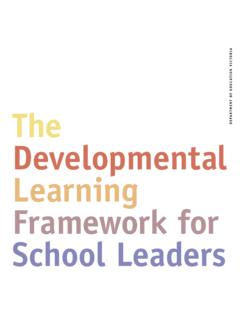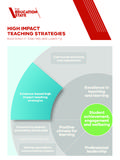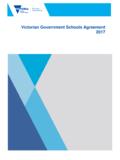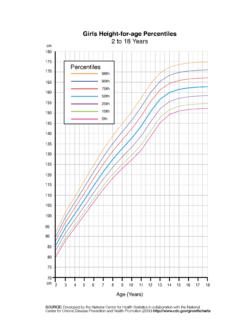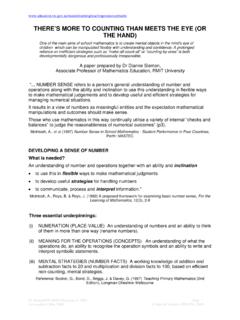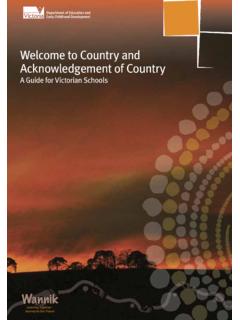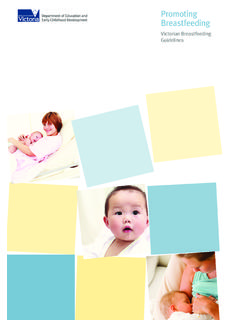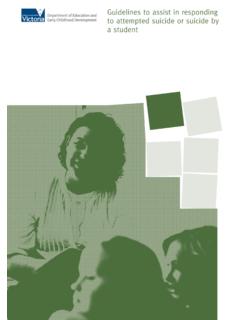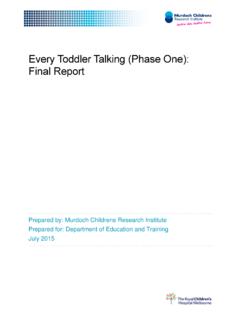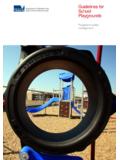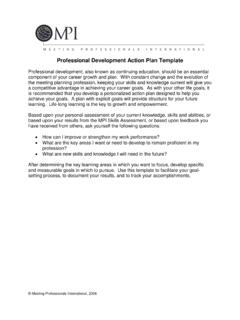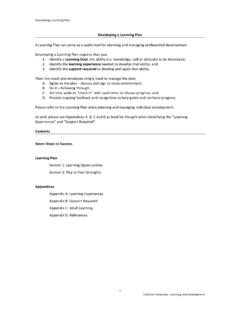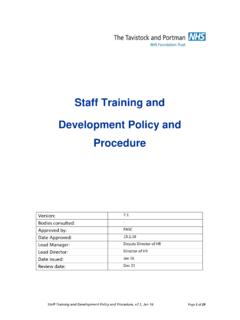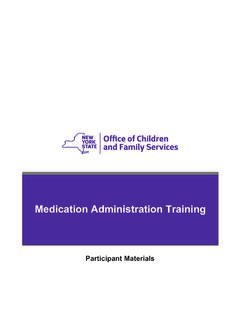Transcription of MENTORING CAPABILITY FRAMEWORK - Department of …
1 MENTORING CAPABILITY FRAMEWORKP ublished by the Department of Education and Training Melbourne, January 2019 State of Victoria ( Department of Education and Training) 2019 The copyright in this document is owned by the State of Victoria ( Department of Education and Training), or in the case of some materials, by third parties (third party materials). No part may be reproduced by any process except in accordance with the provisions of the Copyright Act 1968, the National Education Access Licence for Schools (NEALS) (see below) or with educational institution situated in Australia which is not conducted for profit, or a body responsible for administering such an institution may copy and communicate the materials, other than third party materials, for the educational purposes of the by the Department of Education and Training, 2 Treasury Place, East Melbourne, Victoria, 3002.
2 MENTORING CAPABILITY FRAMEWORK | 3 Contents5 Introduction6 The domains of effective mentoring7 Using the MENTORING CAPABILITY Framework8 Domain 1 - Teaching and Learning10 Domain 2 - professional Identity12 Domain 3 - Communication and Interpersonal Skills14 Domain 4 - Collaborative Partnerships16 Domain 5 - professional Generosity and Empathy18 Domain 6 - professional Culture and ContextMORE INFORMATION see the mentor training for experienced school teachers page on the Department of Education and Training (the Department ) public website see the online induction portal for teachers on the Department s website email: 4 | The Education StateEvaluate and diagnosePrioritise and set goalsExploreEngageElaborateExplainEvalua teCurriculum planning and assessmentEvidence-based high impact teaching strategiesEvaluating impact on learningParents and carers as partnersGlobal citizenshipNetworks with schools, services and agenciesBuildingcommunitiesBuilding practiceexcellenceExcellence in teaching and learningPositive climate for learningProfessionalleadershipCommunity engagement in learningStudent achievement.
3 Engagement and wellbeingEmpowering students and building school prideHealth and wellbeingSetting expectations and promoting inclusionIntellectual engagement and self awarenessInstructional and shared leadershipStrategic resource managementVision values and cultureBuilding leadership teamsImplement and monitorDevelop and planHigh quality teaching and effective school leadership play a critical role in the achievement of the targets outlined in the Department s Education State agenda and the enduring benefits they bring to children and young people in Victoria. As practising teachers and future leaders, PRTs play a prominent role in contributing to the achievement of these targets. The MCF recognises the importance of the strong foundations for professional growth as we know that new teachers become effective teachers when they can learn from experienced colleagues in a supportive and motivating educational setting.
4 Like effective teaching, the effective MENTORING of PRTs is explicit (not incidental), evidence-based (not anecdotal) and collaborative (not isolated), involving dedicated time for reflection and feedback. The MCF focuses on guiding the development of MENTORING relationships and aligns with two components of the FRAMEWORK for Improving Student Outcomes (FISO) the Excellence in Teaching and Learning priority, and the Strategic Resource Management dimension of the professional Leadership priority. The intention of the MCF is to ensure that the development of effective MENTORING relationships is a collective effort and that the access all new teachers have to effective MENTORING is consistent and coherent. To support this collective responsibility, the MCF describes expectations and behaviours of mentors and mentees as well as the cultural and structural elements in schools and other educational settings that create an enabling context for the effective MENTORING of new MENTORING CAPABILITY FRAMEWORK (MCF) is designed to support the effective and ongoing MENTORING of new teachers in Victorian schools and other educational settings.
5 It is a key component of the Effective MENTORING Program (EMP), developed by the Department of Education and Training (the Department ) in partnership with the Victorian Institute of Teaching (VIT) to support the learning and development of provisionally registered teachers (PRTs). Figure FRAMEWORK for Improving Student Outcomes (FISO) Improvement cycleFrom 2019, early childhood teachers will have access to a targeted version of the MENTORING CAPABILITY FRAMEWORK . The companion document ( MENTORING CAPABILITY FRAMEWORK for Early Childhood Education and Care) will be essential to building knowledge about effective MENTORING practices within early childhood more information see: CAPABILITY FRAMEWORK | 5 IntroductionThe AITSL Graduate to Proficient: Australian Guidelines for Teacher Induction into the Profession (the Guidelines), were endorsed by all state ministers for education.
6 Drawing from the Guidelines, the MCF addresses the four key focus areas which are critical for effective induction: professional practice, professional identity, orientation and wellbeing. The MCF highlights a range of supports and strategies, including a strong focus on practice-focused MENTORING , which are particularly powerful in helping PRTs to transition into the teaching profession and move towards the proficient career stage. Focus of inductionProfessionalIdentityProfessiona lPracticesWellbeingOrientationFocus of inductionProfessionalIdentityProfessiona lPracticesWellbeingOrientationProvision of support and challenges to drive graduate practice improvementOpportunities to observe and reflect on excellence in teaching and learningBuilding skills and knowledge about evidence-based teaching strategies and measuring their impactSupport in understanding expectations of teachers in school/education settingsGuidance on technical, intellectual, ethical and cultural elements of professional identityParticipation in continuing professional conversation through networks and positive relationships with learners, parents and colleaguesSupport in building teacher resilience.
7 Emotional wellbeing and relationships with other professionalsStrengthen individuals capacity to manage personal and professional demands of the roleUnderstanding of formal policies, practice, procedural and compliance requirements of the school settingUnderstanding of cultural, interpersonal and administrative requirements and informal expectations of colleagues and the community*Adopted from Graduate to Proficient: Australian guidelines for teacher induction into the profession (the AITSL guidelines).6 | The Education StateThe MENTORING CAPABILITY FRAMEWORK (MCF) communicates the characteristics of effective MENTORING experiences through six domains (Figure ). Each domain identifies the key expectations and behaviours that mentors, mentees and schools should demonstrate to create highly effective MENTORING experiences.
8 These domains have been developed using contemporary Australian and international research into preparing confident and skilled teachers, and setting up a school culture conducive to effective MENTORING . An evidence base is provided for each domain. The domains of effective mentoringEffective MENTORING is a learning relationship that supports effective teaching and learning, and helps mentees to develop a strong professional identity. Figure The domains of effective mentoringEffectiveMentoringTeaching and LearningProfessionalIdentityCommunicatio n andInterpersonal SkillsCollaborativePartnershipsProfessio nal Generosityand EmpathyProfessional Culture and ContextMentoring CAPABILITY FRAMEWORK | 7 Using the MENTORING CAPABILITY FrameworkMentors can use the MCF to: improve their understanding of the expectations of a MENTORING role identify priorities and relevant supports for developing their MENTORING CAPABILITY co-develop norms and protocols with mentees to guide each new MENTORING registered teachers (PRTs) can use the MCF to.
9 Increase their understanding of MENTORING and how it supports their teaching co-develop norms and protocols for MENTORING with their mentor proactively influence the focus of MENTORING conversations to maximise their leaders can use the MCF to: develop criteria for selecting mentor teachers develop/refine shared school-wide norms and protocols for MENTORING relationships identify areas for professional learning to increase MENTORING capacity. THE MENTORING CAPABILITY FRAMEWORK (MCF) DIRECTLY SUPPORTS THE development AND SUSTAINING OF AN EFFECTIVE MENTORING APPROACH FOR NEW TEACHERS. The MENTORING CAPABILITY FRAMEWORK (MCF) directly supports the development and sustaining of an effective MENTORING approach for new teachers. It provides a common language that schools can use to embed a consistent approach to MENTORING in their community.
10 The MCF can be used to inform the development of a school-wide MENTORING program or to guide the ongoing improvement of an existing | The Education StateFacilitating improvement in teaching and learning is the objective of an effective MENTORING relationship. The mentor and mentee engage in ongoing reflective practice, including evaluating data, prioritising and setting goals, developing actions and plans, implementing strategies, monitoring progress and adjusting teaching to maximise the effectiveness of their learning. Mentor Expectations and Behaviours Is a proficient teacher as classified by the Australian professional Standards for Teachers (APST) or Range 2 or above as classified by the Victorian government schools career structure. Is open to learning from collaborative MENTORING relationships that involve sharing student learning experiences with mentees, reflecting on their own teaching experiences and identifying sources of support for developing more effective teaching and learning practices.
